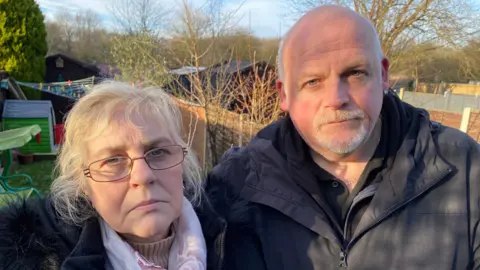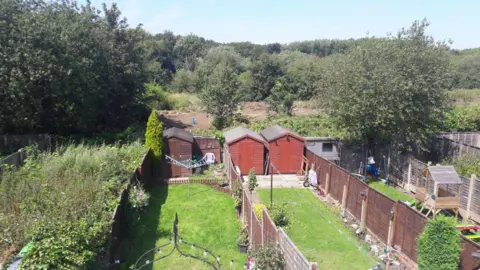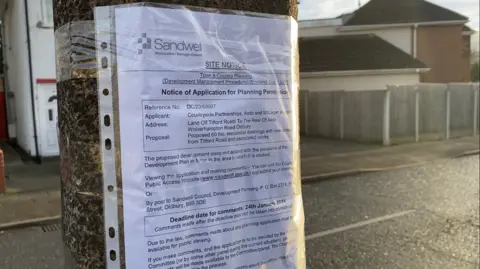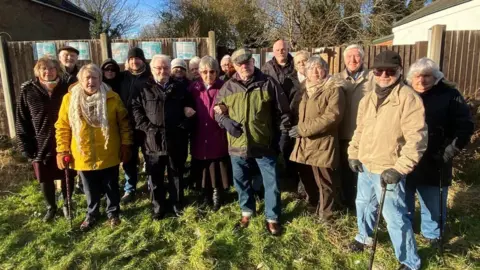'They keep trying' - locals fear planning appeal
 BBC
BBCResidents who thought they had won a "David and Goliath" planning battle have been left disappointed by a developer's plans to appeal.
A row erupted in January over proposals to build 58 homes on a wildlife corridor in Oldbury, West Midlands, due to residents' concerns about wildlife, privacy and congestion.
Sandwell Council’s planning committee later rejected the application by developer Countryside, citing fears of pollution linked to cancer stemming from busier roads.
But bosses at the firm said the unused private land was sitting idle at a time when new homes were needed.
Despite concerns, the plans had been recommended for approval by the council’s planning department.
But a committee rejected them, saying fumes from nearby busy roads would affect people living in and around the new estate.
The fine pollution particles of concern, known as particulate matter or PM2.5, have been linked to cancer, heart disease, asthma and low birth weight.
Local campaigner Phil Shakespeare, 55, said: "They're adamant on stamping on the wildlife corridor.
"It is the third time. We also stopped it in 2019 but they keep trying."
 Phil Shakespeare
Phil ShakespeareThe century-old green space behind Titford Road is home to badgers, foxes and many species of birds, but it has long been eyed up by developers.
Mr Shakespeare, a resolution officer, said he believed the site would never be left alone.
He claimed cutting down trees so close to the M5 would lead to noise and air pollution, making any new homes undesirable.
Mandy Newton, his partner, added she was worried about toxins.
"If the trees that absorb the fumes are removed we are at a far greater risk of physical and mental illness," she said.

The BBC previously visited Titford Road, where residents came together to oppose the application.
Ben and Dawn Bishop, who live in a bungalow that directly backs on to the 1.9 hectare (4.7 acre) plot, said they were fearful of what it would mean for them.
The pair were concerned about the volume of construction traffic and a lack of privacy when the development was complete.
"It's going to destroy our lives," Ms Bishop said at the time.
Countryside previously said at least seven trees would need to be cut down but the scheme would retain a watercourse, create a green buffer with native species and plant replacement saplings.

A spokesperson for Vistry Group, the parent company of Countryside, confirmed it had decided to appeal against the decision.
“We were disappointed that our original proposals were refused by the planning committee despite the recommendation to approve them," a statement read.
"The site is currently unused, private land and our plans would have transformed it into a well-designed new development providing 60 much needed affordable homes, new public access and comprehensive new landscaping."
The appeal, which was launched on 1 October, will be decided at a panel in Bristol on a date yet to be decided.
Follow BBC Birmingham on BBC Sounds, Facebook, X and Instagram.
